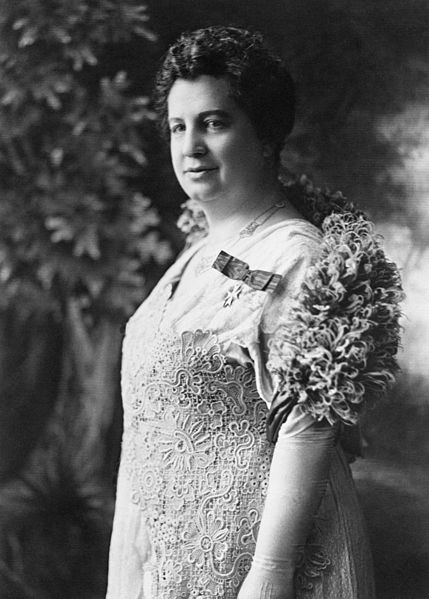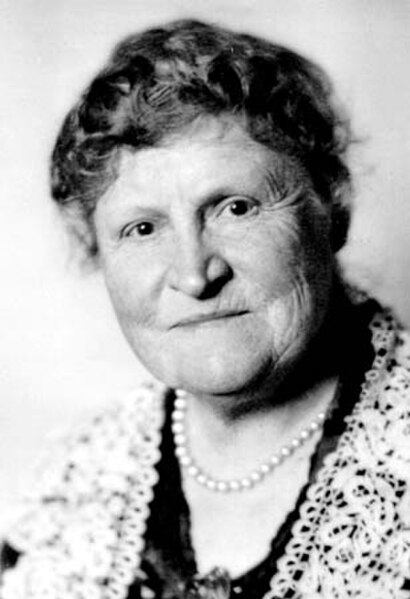Emily Murphy was a Canadian women's rights activist and author. In 1916, she became the first female magistrate in Canada and the fifth in the British Empire after Elizabeth Webb Nicholls, Jane Price, E. Cullen and Cecilia Dixon of Australia. She is best known for her contributions to Canadian feminism, specifically to the question of whether women were "persons" under Canadian law.
Emily Murphy
Statue of Emily Murphy in the monument to The Famous Five, Parliament Hill, Ottawa
William Lyon Mackenzie King unveils a plaque commemorating the five Alberta women whose efforts resulted in the Persons Case. [Front, L-R]: Mrs. Muir Edwards, daughter-in-law of Henrietta Muir Edwards; Mrs. J.C. Kenwood, daughter of Judge Emily Murphy; Hon. W.L. Mackenzie King; Mrs. Nellie McClung. [Rear, L-R]: Senators Iva Campbell Fallis, Cairine Wilson (Ottawa).
The cover of Murphy's 1922 book The Black Candle
The Famous Five, also known as The Valiant Five, and initially as The Alberta Five, were five prominent Canadian suffragists who advocated for women and children: Henrietta Muir Edwards, Nellie McClung, Louise McKinney, Emily Murphy, and Irene Parlby. On August 27, 1927, they petitioned the federal government to refer the issue of the eligibility of women to be senator to the Supreme Court of Canada. This petition was the foundation of the Persons Case, a leading constitutional decision. Although most Canadian women had the vote in federal elections and all provinces but Quebec by 1927, the case was part of a larger drive for political equality. This was the first step towards equality for women in Canada and was the start to the first wave of feminism.
Henrietta Muir Edwards
Nellie McClung
Louise McKinney
Emily Murphy



![William Lyon Mackenzie King unveils a plaque commemorating the five Alberta women whose efforts resulted in the Persons Case. [Front, L-R]: Mrs. Muir](https://upload.wikimedia.org/wikipedia/commons/thumb/0/0e/WLMK_unveiling_plaque_to_Valiant_Five.jpg/640px-WLMK_unveiling_plaque_to_Valiant_Five.jpg)



